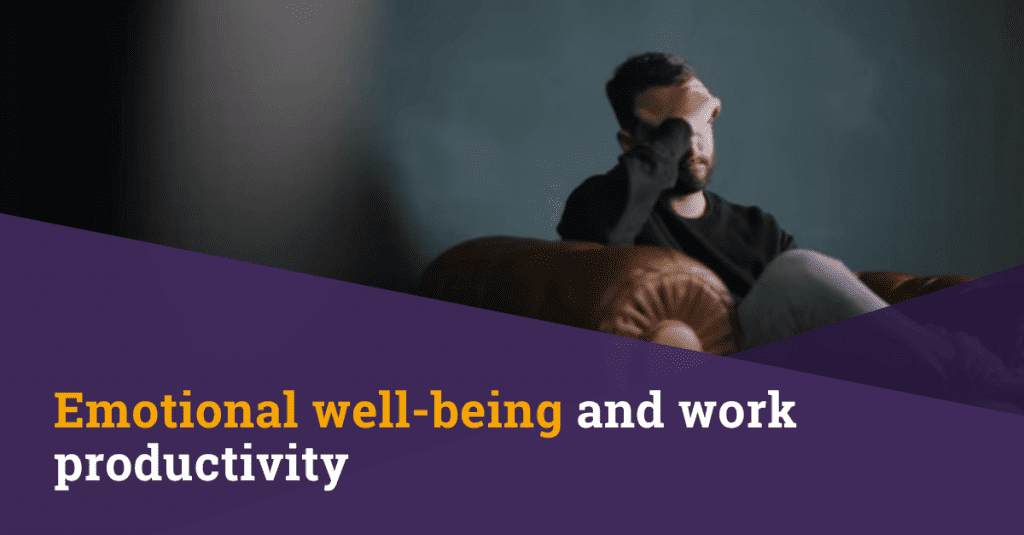One of the main factors that determine the good disposition of your team is their emotional well-being, which is reflected in their work productivity.
In this blog we will tell you about this concept that is so important in day-to-day corporate culture and how you can manage it, with the help of the analysis by Personrie.
What do we mean by emotional well-being?
The World Health Organization defines mental and emotional health as a general state of well-being that encompasses the physical, mental and social spheres.
In turn, the WHO assures that emotional well-being allows people to respond effectively to everyday stressful situations and to perform at their work with ideal levels of performance.

What is the current importance of emotional well-being in labor productivity?
The effects on emotional well-being caused by the covid pandemic are evident.
According to The Lancet, this mental health pandemic could cost the global economy more than 5 billion euros by 2030 and generate billions in losses due to sick leave, presenteeism, poor performance and other associated economic costs.
For this reason, more and more companies are choosing to prioritize mental health and emotional well-being in their organizations. In fact, if you want to know more about how to have healthy selection processes, we invite you to read the guide that we made together with Psonríe ‘Emotional well-being at work and employer branding‘.
Moreover, according to the Capgemini Institute’s “Emotional Intelligence” study, workers with high emotional intelligence increase business productivity by 20%.
This ability to recognize one’s own and others’ emotions improves decision making, protects against stress and improves work performance and employee morale.
So, yes, it is true, the emotional well-being of employees affects the organization’s productivity.
How can we protect mental health and promote emotional well-being within organizations?
According to David Tomás, CEO of Cyberclick, there are 8 key measures.:
- Create the figure of the Chief Happyness Officer: a person responsible for the emotional well-being of the team.
- Train employees in emotional intelligence.
- Give constant feedback to evolve and improve.
- Work by objectives to measure performance and achievement of accomplishments.
- Provide flexibility in schedules to reconcile and reconcile personal and professional life.
- Encourage teleworking to avoid the stress of the office and being on-site.
- Enable continuous and flexible training.
- Create offices with complementary services (cafeterias, kindergartens, etc.)
Undoubtedly, a paradigm shift and a conscious work from the Human Resources and Management areas is required to create processes that recognize, promote and manage the emotional well-being of employees.
What is the importance of taking care of emotional well-being in the selection process?
Emotional well-being should not only be worked on in the processes with the organization’s employees, but also with those who are in the process of becoming employees.
For this, it is necessary to prepare and promote healthy selection processes that turn a stage of nerves and expectations into a great experience.
Talking about selection processes often brings up unpleasant feelings. Feeling judged, being afraid to be yourself, not being the chosen one, among others.
Taking care of this stage will be a great opportunity to improve employer branding and most importantly to strengthen the emotional health of your team.

The mental and emotional health of employees has become one of the most relevant issues to work on for companies, which are now aware of how this affects labor productivity.
How do you manage emotional well-being and its importance in labor productivity in your organization?
Try TalentFY in a Live Demo
Try our recruiting platform without compromise.
And if it doesn’t work for you, YOU DON’T PAY No small print.
Join our News
Subscribe and receive our most exclusive content and news every month
directly in your inbox.





